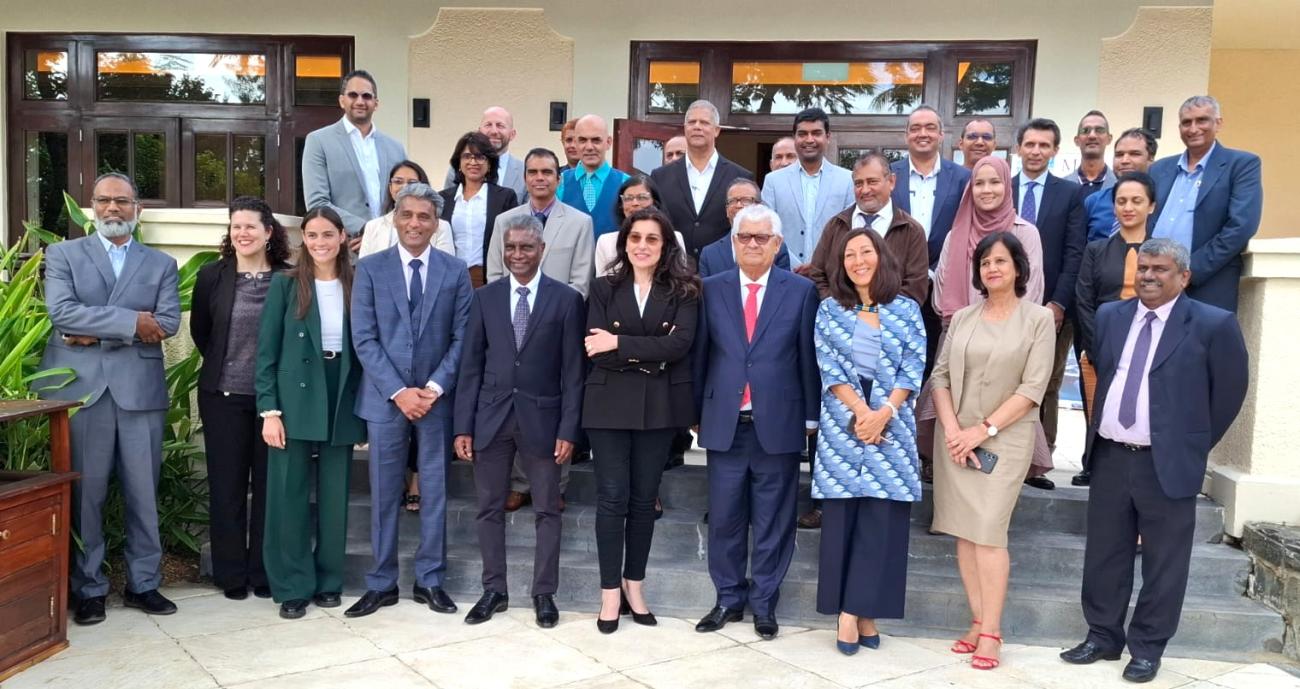Mauritius is at a pivotal crossroads. As a Small Island Developing State (SIDS), it depends heavily on its ports—gateways of trade, connectivity, and economic growth. However, the challenges of climate change, energy security, and access to climate financing make sustainable transformation a pressing necessity.
Last week, the United Nations Conference on Trade and Development (UNCTAD) and the Mauritius Ports Authority (MPA) gathered national stakeholders to present the Sustainable Smart Port (SSP) Assessment Report for Port Louis. More than a technical review, this presentation marked a bold step toward reshaping Mauritius’ maritime sector—aligning economic ambition with environmental responsibility.
Ports are a driving force behind economic growth and connectivity. For Mauritius, their significance cannot be overstated. Contributing approximately 2% to national GDP, Port Louis plays an indispensable role in trade and logistics. But like ports worldwide, it faces mounting pressures—rising energy costs, fossil fuel dependency, and the urgency of reducing carbon emissions.
The SSP Assessment Report provides a roadmap for sustainable modernization, identifying solar photovoltaic (PV) energy as the most viable renewable source for Port Louis. The report also explores electrification of port equipment and onshore power supply—steps that could drastically cut emissions and operational costs.
Yet, the path to transformation is not without obstacles. Land constraints, funding gaps, and regulatory challenges loom large, making international and local partnerships critical for unlocking solutions. As a middle-income country, Mauritius faces difficulty in accessing climate financing, but through strategic engagement, it can mobilize investment for greener infrastructure.
Beyond Ports: A Blueprint for a Sustainable Ocean Economy
The transformation of Port Louis into a smart, green maritime hub extends far beyond trade and logistics—it is integral to Mauritius' vision for a resilient ocean economy. As a SIDS, Mauritius relies heavily on its marine resources, from fisheries and tourism to coastal biodiversity. A sustainable port is not just an isolated infrastructure upgrade; it serves as a cornerstone in the blue economy, supporting ocean-based industries while reducing environmental impact.
By integrating renewable energy and electrification into port operations, Mauritius is setting a precedent for low-carbon maritime infrastructure. This shift benefits ocean health by curbing pollution and fostering cleaner coastal waters—critical for fisheries sustainability and marine tourism. Moreover, smart port solutions enable efficient logistics for sustainable seafood supply chains, reinforcing Mauritius’ commitment to balancing economic prosperity with environmental stewardship.
The alignment of port modernization with climate adaptation strategies further strengthens Mauritius’ global leadership in sustainable maritime practices. Investing in green port development provides a model for how SIDS can harness innovation to drive broader ocean sustainability—securing livelihoods, protecting marine ecosystems, and enhancing resilience in the face of climate change.
Beyond Port Louis: A Global Model for Smart Ports
At the SSP presentation, UN Resident Coordinator for Mauritius and Seychelles, Ms. Lisa Singh, underscored the necessity of efficient and sustainable port operations, especially in light of global trade disruptions. She emphasized that the maritime sector should be integrated into Mauritius’ next Nationally Determined Contribution (NDC 3.0)—ensuring ports and shipping are central to climate adaptation strategies.
Ms. Frida Youssef, Chief of Transport at UNCTAD, echoed this sentiment, highlighting Mauritius’ SSP Assessment process as a potential model for other SIDS countries. The project’s success lies in active stakeholder collaboration and local expertise, demonstrating how smart, clean-energy-driven ports can become reality in similar economies.
A Bridge to the Future
The future of Port Louis is not just about trade; it is about resilience, sustainability, and innovation. Mauritius' Government Five-Year Plan (2025-2029) reflects the ambition to position the nation as a leading maritime and logistics hub in the Indian Ocean.
By embracing clean energy, strengthening partnerships, and fostering forward-thinking policies, Mauritius can set a precedent for smart, sustainable port development—not just for itself, but for other SIDS nations seeking a greener future.







